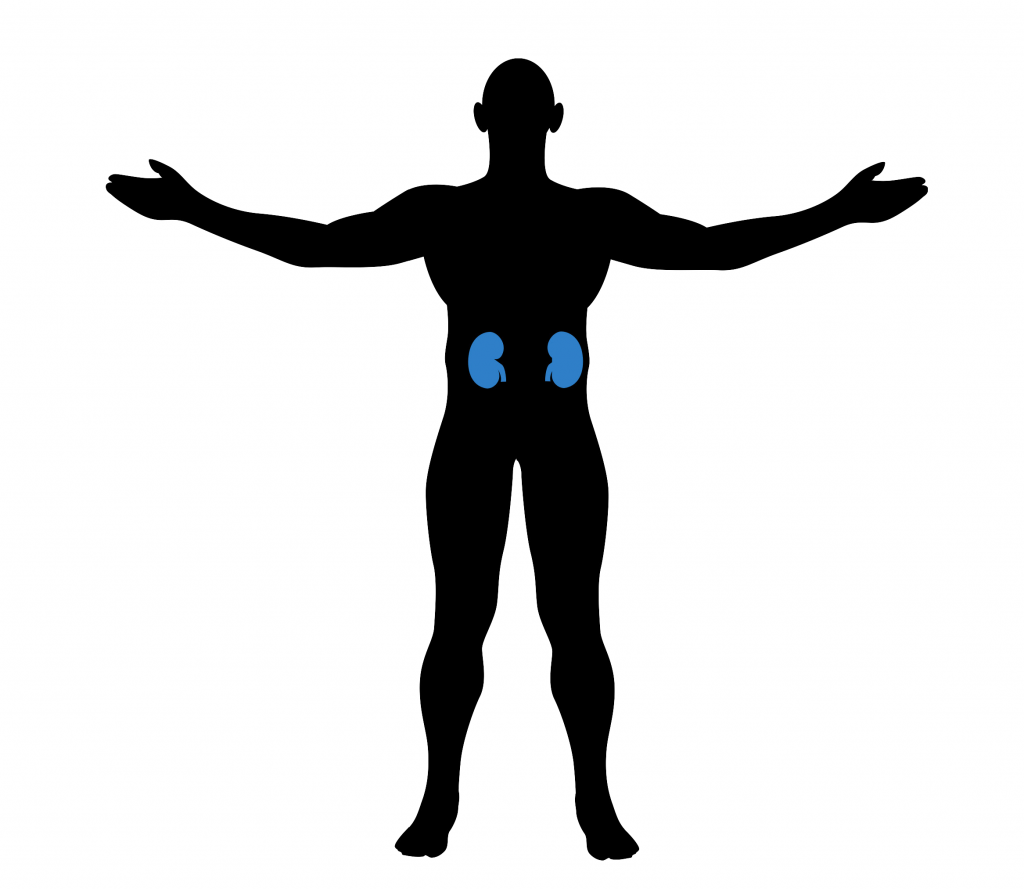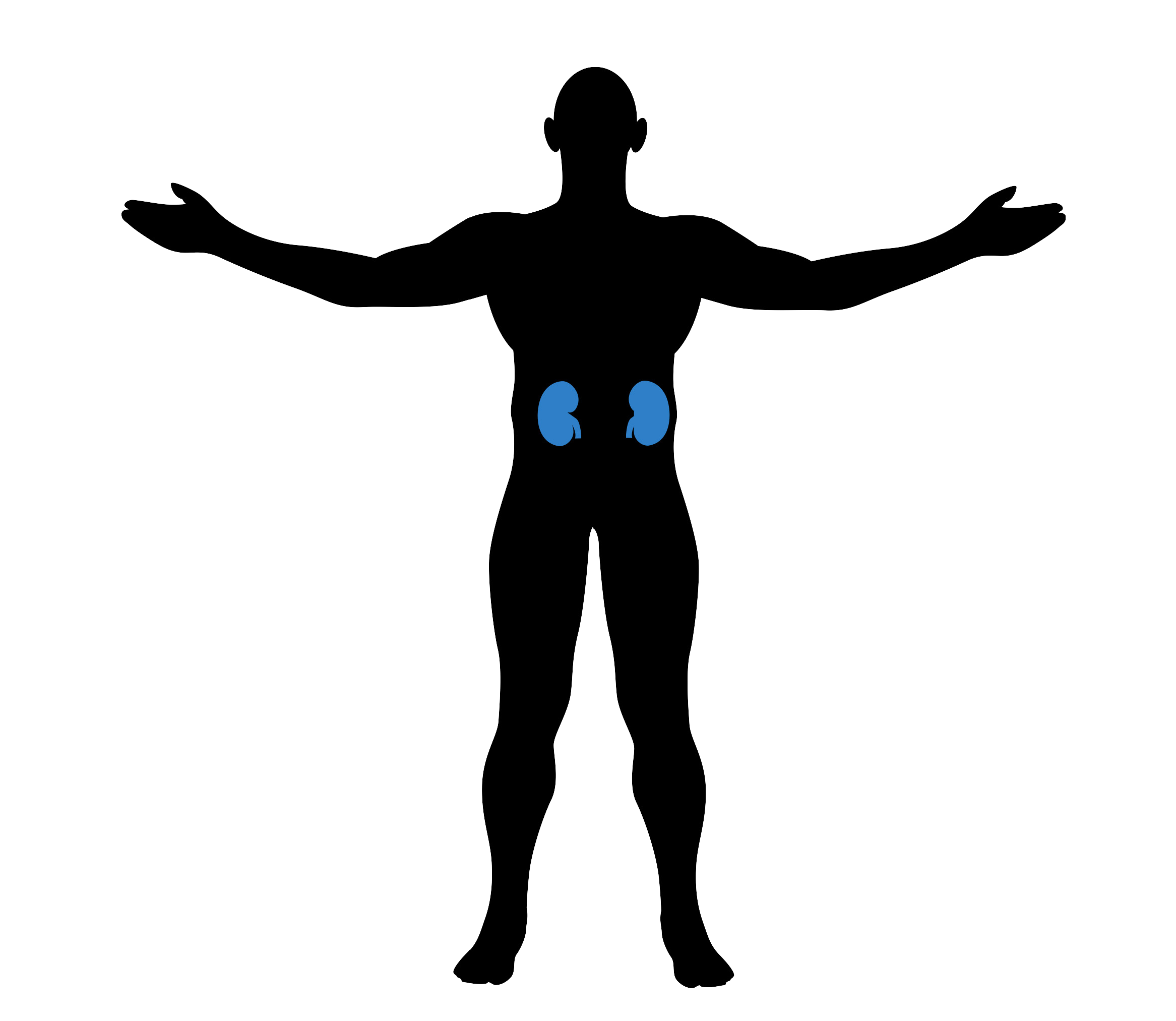Everything you need to know about your kidneys

 Our kidneys play an important role in keeping our bodies healthy. Their job is to clean our blood by removing excess fluid and toxins that can otherwise cause serious health complications. But one in ten Canadians has kidney disease, meaning their kidneys are not functioning at their full capacity, putting them at risk for developing kidney failure. Every year more than 600 patients with pre-dialysis and chronic kidney disease visit our Community Renal Centre and for dialysis patients, St. Joe’s can feel like a second home — many visit our clinic over 150 times a year for treatment which can last for up to four hours at a time. To understand more about kidney disease, we talked to Pat Pollard, our Independent Dialysis Coordinator at St. Joe’s.
Our kidneys play an important role in keeping our bodies healthy. Their job is to clean our blood by removing excess fluid and toxins that can otherwise cause serious health complications. But one in ten Canadians has kidney disease, meaning their kidneys are not functioning at their full capacity, putting them at risk for developing kidney failure. Every year more than 600 patients with pre-dialysis and chronic kidney disease visit our Community Renal Centre and for dialysis patients, St. Joe’s can feel like a second home — many visit our clinic over 150 times a year for treatment which can last for up to four hours at a time. To understand more about kidney disease, we talked to Pat Pollard, our Independent Dialysis Coordinator at St. Joe’s.
Why are our kidneys so important?
Our kidneys remove waste products (toxins) and excess fluid from our bloodstream. When they aren’t working properly, those toxins and excess fluid can build up and we can see the accumulation of minerals like phosphorus, which can rob your bones of calcium, putting them at higher risk for becoming brittle and breaking, and potassium, which can actually stop your heart.
What leads to our kidneys not working properly?
The two major causes of chronic kidney disease are diabetes and high blood pressure, but it can also be hereditary. If a patient has low-functioning kidneys (meaning they have not failed), they are referred to our clinic where our team (consisting of nephrologists, nurses, dietitians, pharmacists and social workers) works with them to slow down the progression of kidney disease by altering their medication, diet, fluid intake, and keep their blood pressure and blood sugar levels within normal ranges.
What happens if someone’s kidneys fail?
When a patient’s kidneys fail they need to start a process to remove toxins and excess fluid from their bloodstream, called dialysis. There are different kinds of dialysis, including peritoneal dialysis which is done at home on a daily basis and consists of a catheter being inserted into the lining of the abdomen and a special solution being used to draw the excess fluid and toxins out. Haemodialysis is another type of dialysis; in-centre treatment requires patients to come into the Health Centre where they’re connected to a machine that has a filter called a dialyzer – or an artificial kidney –which removes the toxins and excess fluid from their blood. The process takes between three and a half to four hours and is done three times a week.
Can people do dialysis at home?
Yes! Peritoneal dialysis is exclusively done at home because it happens seven days a week. Haemodialysis can also be done at home. Our teams offer training to any patients looking to do either at their homes, complete with resources and support as needed.
How else is kidney failure treated?
Other options are conservative/palliative care. Patients dealing with additional chronic diseases may not wish to start dialysis, in which case our team still manages their care. A kidney transplant is also an option, which is considered another type of treatment. All treatments require life-long monitoring but taking steps to focus on your health – such as exercising on a regular basis, eating well, controlling your blood pressure, etc. – can allow someone with chronic kidney disease to maintain a good quality of life.
Learn more about kidney health, kidney failure and dialysis on The Kidney Foundation of Canada’s website.
